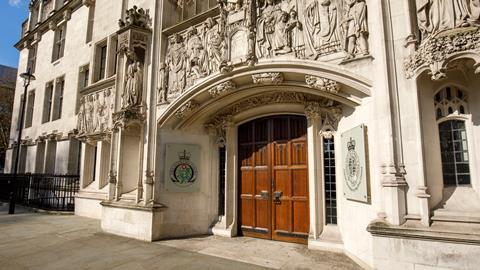A solicitor has spoken about the important role that law centres play in housing matters as she and her colleagues head to the UK’s highest court this week.
The Supreme Court will tomorrow hear an appeal concerning rent repayment orders and whether they can only be made against an immediate landlord or whether a superior landlord can also be liable. Hammersmith & Fulham Law Centre, and the centre's barristers, are acting pro bono for the tenants.
Poppy Bourke, a solicitor at the law centre, told the Gazette that housing law specialist Simon Mullings was asked to act pro bono in the Court of Appeal case and brought the case with him when he joined the centre in May 2022.
‘Law centres have been to the Supreme Court - for example Hackney Law Centre brought the important homelessness case of Haile v London Borough of Waltham Forest 2015 UKSC 34 - but not often. It is really exciting,’ Bourke said.
‘The law centre movement was started in the 1970s. Law centres work with and support their local community to advise on and defend their legal rights and improve the daily lives of clients. In respect of housing, law centres have in-depth knowledge of the borough they serve, the housing stock, the condition of housing and the problems facing residents. This enables them to find ways to address, highlight and challenge housing issues to bring about change for tenants.’
The appeal, scheduled to last one day, will be heard by Lord Lloyd-Jones, Lord Briggs, Lord Kitchin, Lord Burrows and Lord Richards.
Bourke said: 'One of the significant aspects of this case, as highlighted by the intervener Safer Renting, is that as it stands following the Court of Appeal decision, in circumstances where rent-to-rent schemes are being used, and the tenant’s immediate landlord is a company that disappears, they cannot obtain a rent repayment order against the superior landlord.
'Our case is that the correct construction of chapter 4 of the Housing and Planning Act 2016 means both the "immediate" and "superior" landlords are captured by the legislation.'
This article is now closed for comment.




























7 Readers' comments